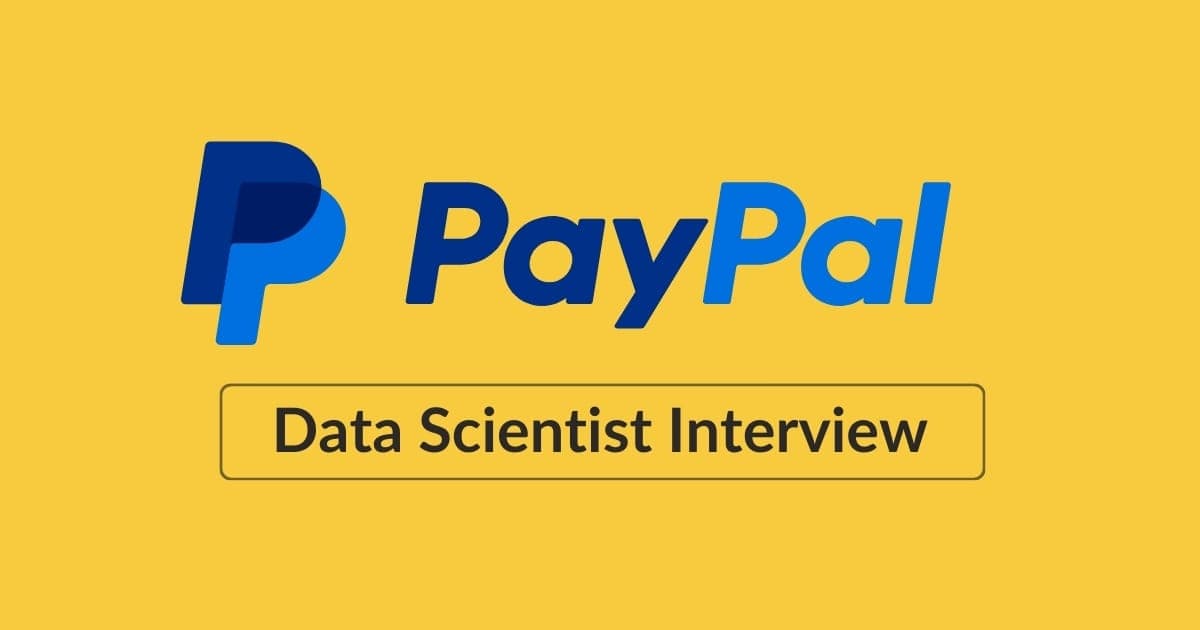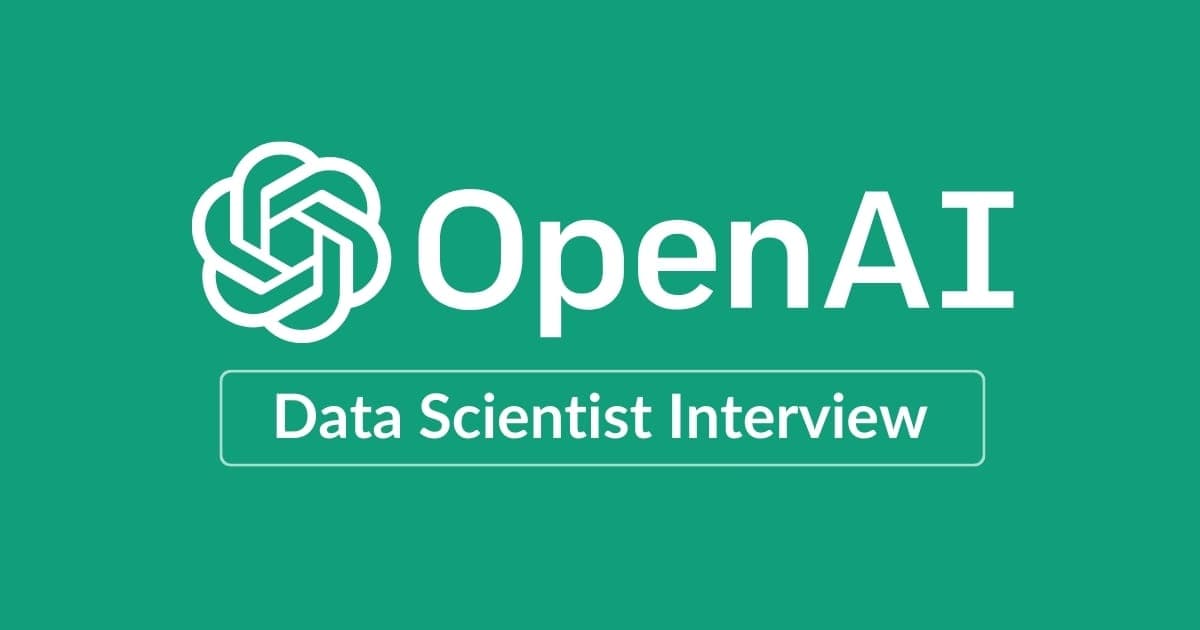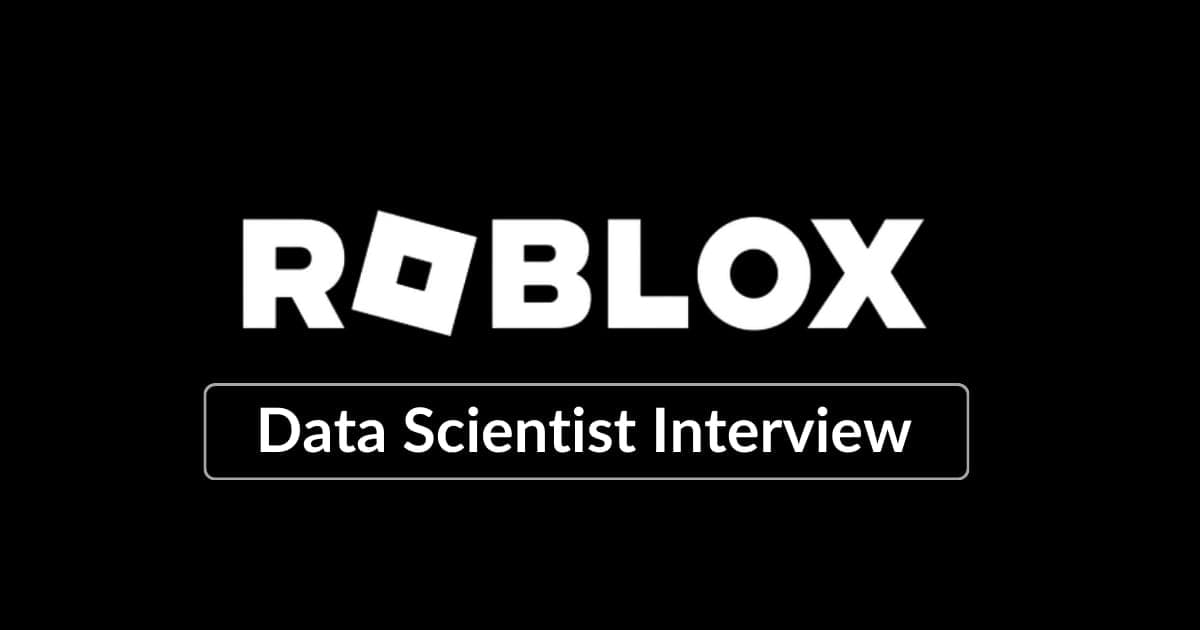Are you preparing for a Data Scientist interview at Lyft? This comprehensive guide will provide you with insights into Lyft’s interview process, the essential skills required, and strategies to help you excel.
As a leading player in the ride-sharing industry, Lyft seeks data scientists who can leverage data to enhance transportation experiences and drive business growth. Whether you are an experienced data professional or looking to advance your career, understanding Lyft’s unique interview approach can give you a significant advantage.
In this blog, we will explore the interview structure, highlight the types of questions you can expect, and share valuable tips to help you navigate each stage with confidence.
Let’s get started! 👇
1. Lyft Data Scientist Job
1.1 Role Overview
At Lyft, Data Scientists play a pivotal role in enhancing the future of transportation through data-driven insights and innovation. This position requires a combination of technical proficiency, analytical skills, and a strategic mindset to derive insights that inform critical business decisions. As a Data Scientist at Lyft, you will collaborate with cross-functional teams to tackle complex problems and contribute to creating a seamless transportation experience for users.
Key Responsibilities:
- Set business metrics to evaluate the health of Lyft’s products and the experiences of passengers and drivers.
- Partner with product managers, engineers, marketers, designers, and operators to translate business insights into actionable decisions.
- Identify opportunities for growth and efficiency within Lyft’s operations.
- Design and analyze product experiments, communicate results, and make informed launch decisions.
- Develop analytical frameworks to monitor and visualize business and product performance.
- Mentor junior data scientists and serve as a data-driven thought leader to cross-functional managers.
Skills and Qualifications:
- Degree in a quantitative field such as statistics, economics, applied math, operations research, or engineering.
- 2+ years of industry experience in a product analytics-based science or statistics role.
- Proficiency in SQL for writing structured and efficient queries on large datasets.
- Experience in programming, particularly with data science and visualization libraries in Python.
- Basic or higher-level experience with Machine Learning.
- Experience in experimentation and statistical analysis.
- Strong communication skills to collaborate with cross-functional partners and build the business.
1.2 Compensation and Benefits
Lyft offers a competitive compensation package for Data Scientists, reflecting its commitment to attracting and retaining top talent in the data and technology sectors. The compensation structure includes a base salary, stock options, and performance bonuses, along with various benefits that support work-life balance and professional development.
Example Compensation Breakdown by Level:
| Level Name | Total Compensation | Base Salary | Stock (/yr) | Bonus |
|---|---|---|---|---|
| T3 (Data Scientist) | $225K | $143K | $75.3K | $7.1K |
| T4 (Data Scientist II) | $260K | $163K | $94.5K | $2.6K |
| T5 (Senior Data Scientist) | $334K | $186K | $148K | $0 |
| T6 (Staff Data Scientist) | $461K | $220K | $240K | $1.5K |
Additional Benefits:
- Participation in Lyft’s stock programs, including restricted stock units (RSUs).
- Comprehensive health, dental, and vision insurance.
- Flexible work hours and remote work options.
- Generous paid time off and parental leave policies.
- Professional development opportunities and tuition reimbursement.
Tips for Negotiation:
- Research compensation benchmarks for data scientist roles in your area to understand the market range.
- Consider the total compensation package, which includes stock options, bonuses, and benefits alongside the base salary.
- Highlight your unique skills and experiences during negotiations to maximize your offer.
Lyft’s compensation structure is designed to reward innovation, collaboration, and excellence in the field of data science. For more details, visit Lyft’s careers page.
2. Lyft Interview Process and Timeline
Average Timeline: 4-6 weeks
2.1 Resume Screen (1-2 Weeks)
The first stage of Lyft’s Data Scientist interview process is a resume review. Recruiters assess your background to ensure it aligns with the job requirements. Given the competitive nature of this step, presenting a strong, tailored resume is crucial.
What Lyft Looks For:
- Proficiency in Python, SQL, and machine learning techniques.
- Experience with large-scale datasets and data-driven decision-making.
- Projects that demonstrate innovation, business impact, and collaboration.
- Familiarity with ride-sharing industry trends and challenges.
Tips for Success:
- Highlight experience with predictive modeling, A/B testing, or customer segmentation.
- Emphasize projects involving machine learning, data analysis, or operational KPIs.
- Use keywords like "data-driven insights," "statistical analysis," and "SQL."
- Tailor your resume to showcase alignment with Lyft’s mission of improving people’s lives with the world’s best transportation.
Consider a resume review by an expert recruiter who works at FAANG to enhance your application.
2.2 Recruiter Phone Screen (30-60 Minutes)
In this initial call, the recruiter reviews your background, skills, and motivation for applying to Lyft. They will provide an overview of the interview process and discuss your fit for the Data Scientist role.
Example Questions:
- Can you describe a time when your analysis directly influenced a business decision?
- What tools and techniques do you use to clean and analyze large datasets?
- How have you contributed to cross-functional team projects?
Prepare a concise summary of your experience, focusing on key accomplishments and business impact.
2.3 Technical Screen (30-45 Minutes)
This round evaluates your technical skills and problem-solving abilities. It typically involves questions on probability, statistics, machine learning, and business case studies.
Focus Areas:
- Machine Learning: Explain concepts like supervised vs. unsupervised learning, feature selection, and overfitting.
- Data Analysis: Discuss your process for data cleaning, preparation, and analysis.
- Business Case Studies: Propose solutions for optimizing pricing strategies or designing recommendation systems for Lyft.
Preparation Tips:
Practice solving real-world business problems and coding challenges. Consider mock interviews or coaching by an expert coach who works at FAANG for personalized feedback.
2.4 Onsite Interviews (Full Day)
The onsite interview typically consists of multiple rounds with data scientists, managers, and cross-functional partners. Each round is designed to assess specific competencies.
Key Components:
- Technical Challenges: Solve live exercises that test your ability to manipulate and analyze data effectively.
- Real-World Business Problems: Address complex scenarios involving demand modeling, ride cancellations, or fraud detection.
- Product Case Studies: Define key metrics, evaluate product performance, and propose data-driven improvements.
- Behavioral Interviews: Discuss past projects, collaboration, and adaptability to demonstrate cultural alignment with Lyft.
Preparation Tips:
- Review core data science topics, including statistical testing, experiment design, and machine learning algorithms.
- Research Lyft’s services and think about how data science could enhance them.
- Practice structured and clear communication of your solutions, emphasizing actionable insights.
For Personalized Guidance:
Consider mock interviews or coaching sessions to simulate the experience and receive tailored feedback. This can help you fine-tune your responses and build confidence.
Lyft Data Scientist Interview Questions
Probability & Statistics Questions
Probability and statistics questions at Lyft assess your understanding of fundamental concepts and your ability to apply them to real-world scenarios.
Example Questions:
- Can you explain the concept of overfitting and how to prevent it?
- How would you design and implement an A/B test?
- Can you describe your experience with time series analysis?
- How would you detect and prevent fraud in a ride-sharing service?
- Can you explain the concept of bias and how to address it?
- What are some challenges faced when working with large data sets?
- Can you explain the differences between regularization techniques?
For more on statistics, check out the Applied Statistics Course.
Machine Learning Questions
Machine learning questions evaluate your knowledge of algorithms, model building, and problem-solving techniques applicable to Lyft’s services.
Example Questions:
- Can you explain the difference between supervised and unsupervised learning?
- How would you approach feature selection for a given data set?
- How would you design and implement a recommendation system for a ride-sharing service?
- How would you approach optimizing the pricing strategy for Lyft?
- Can you explain how you would design a machine learning algorithm to predict ride cancellations?
- Design and present a machine learning algorithm for a real-world problem.
Enhance your machine learning skills with the Machine Learning Course.
SQL Questions
SQL questions assess your ability to manipulate and analyze data using complex queries. Below are example tables Lyft might use during the SQL round of the interview:
Rides Table:
| RideID | UserID | DriverID | StartLocation | EndLocation | RideDate | Fare |
|---|---|---|---|---|---|---|
| 1 | 101 | 201 | Downtown | Airport | 2023-10-01 | 25.50 |
| 2 | 102 | 202 | Suburb | Downtown | 2023-10-02 | 18.75 |
| 3 | 103 | 203 | Airport | Suburb | 2023-10-03 | 30.00 |
Users Table:
| UserID | UserName | JoinDate |
|---|---|---|
| 101 | Alice | 2023-01-01 |
| 102 | Bob | 2023-02-01 |
| 103 | Carol | 2023-03-01 |
Example Questions:
- Total Fare Calculation: Write a query to calculate the total fare collected by each driver.
- Frequent Riders: Write a query to find users who have taken more than 5 rides in the past month.
- Ride Analysis: Write a query to determine the average fare for rides starting from 'Downtown'.
- New Users: Write a query to list all users who joined in the last 3 months.
- Driver Performance: Write a query to find the driver with the highest total fare collected.
Practice SQL queries on the DataInterview SQL pad.
Business Case Study Questions
Business case study questions evaluate your ability to analyze business problems and propose actionable solutions using data-driven insights.
Example Questions:
- How would you approach modeling demand for Lyft's ride-sharing service?
- Analyze a data set and present findings.
- How would you handle situations with incomplete information?
- Can you give an example of collaborative work with diverse team members?
- How do you prioritize and manage work with multiple projects?
Learn how to tackle business cases with the Case in Point Course.
4. How to Prepare for the Lyft Data Scientist Interview
4.1 Understand Lyft’s Business Model and Products
To excel in open-ended case studies at Lyft, it’s crucial to understand their business model and product offerings. Lyft operates as a ride-sharing platform, connecting passengers with drivers through a mobile app, and has expanded into areas like bike and scooter rentals.
Key Areas to Understand:
- Revenue Streams: How Lyft generates income through ride fares, subscription services, and partnerships.
- Customer Experience: The role of data science in enhancing user satisfaction and optimizing ride-sharing operations.
- Product Offerings: Lyft’s expansion into micro-mobility and autonomous vehicle technology.
Understanding these aspects will provide context for tackling business case questions, such as optimizing pricing strategies or improving user engagement.
4.2 Master Lyft’s Product Metrics
Familiarity with Lyft’s product metrics is essential for excelling in product case and technical interviews.
Key Metrics:
- Operational Metrics: Ride completion rates, driver availability, and average wait times.
- Engagement Metrics: Daily active users (DAU), ride frequency, and user retention rates.
- Revenue Metrics: Average fare per ride, subscription growth, and revenue per user.
These metrics will help you navigate product case questions and demonstrate your understanding of data’s impact on business decisions.
4.3 Align with Lyft’s Mission and Values
Lyft’s mission is to improve people’s lives with the world’s best transportation. Aligning your preparation with this mission is key to showcasing your cultural fit during interviews.
Core Values:
- Innovation, community, and sustainability.
- Collaboration across diverse teams and disciplines.
- Dedication to data-driven decision-making and problem-solving.
Showcase Your Fit:
Reflect on your experiences where you:
- Used data to create user-centric solutions.
- Innovated on existing processes or products.
- Collaborated effectively with diverse teams to achieve shared goals.
Highlight these examples in behavioral interviews to authentically demonstrate alignment with Lyft’s mission and values.
4.4 Strengthen Your SQL and Coding Skills
Lyft emphasizes technical proficiency, making SQL and programming skills essential for success in their data science interviews.
Key Focus Areas:
- SQL Skills:
- Master joins (INNER, LEFT, RIGHT).
- Practice aggregations (SUM, COUNT, AVG) and filtering with
GROUP BYandHAVING. - Understand window functions (RANK, ROW_NUMBER).
- Build complex queries using subqueries and Common Table Expressions (CTEs).
- Programming Skills:
- Python: Focus on data manipulation with pandas and NumPy.
- Machine Learning: Brush up on libraries like scikit-learn for model building and evaluation.
Preparation Tips:
- Practice SQL queries on real-world scenarios, such as ride analysis and user segmentation.
- Consider enrolling in a Data Scientist Interview Bootcamp for comprehensive preparation.
4.5 Practice with a Peer or Interview Coach
Simulating the interview experience can significantly improve your confidence and readiness. Mock interviews with a peer or coach can help you refine your answers and receive constructive feedback.
Tips:
- Practice structuring your answers for product case and technical questions.
- Review common behavioral questions to align your responses with Lyft’s values.
- Engage with professional coaching services such as DataInterview.com for tailored, in-depth guidance and feedback.
Consider engaging with coaching platforms like DataInterview.com for tailored preparation. Mock interviews will help you build communication skills, anticipate potential challenges, and feel confident during Lyft’s interview process.
5. FAQ
- What is the typical interview process for a Data Scientist at Lyft?
The interview process generally includes a resume screen, recruiter phone screen, technical screen, and onsite interviews. The entire process typically spans 4-6 weeks. - What skills are essential for a Data Scientist role at Lyft?
Key skills include proficiency in SQL and Python, experience with machine learning techniques, strong analytical skills, and the ability to communicate insights effectively to cross-functional teams. - How can I prepare for the technical interviews?
Focus on practicing SQL queries, coding challenges in Python, and reviewing statistical concepts. Be prepared to discuss machine learning algorithms and their applications in real-world scenarios, particularly in the context of ride-sharing. - What should I highlight in my resume for Lyft?
Emphasize your experience with data analysis, machine learning projects, and any work that demonstrates your ability to drive business impact. Tailor your resume to reflect your alignment with Lyft’s mission of improving transportation experiences. - How does Lyft evaluate candidates during interviews?
Candidates are assessed on their technical skills, problem-solving abilities, and cultural fit. Lyft places a strong emphasis on collaboration, innovation, and the ability to derive actionable insights from data. - What is Lyft’s mission?
Lyft’s mission is "to improve people’s lives with the world’s best transportation," which emphasizes their commitment to enhancing user experiences through data-driven solutions. - What are the compensation levels for Data Scientists at Lyft?
Compensation for Data Scientists at Lyft varies by level, ranging from approximately $225K for T3 roles to $461K for T6 roles, including base salary, stock options, and bonuses. - What should I know about Lyft’s business model for the interview?
Understanding Lyft’s business model, including its revenue streams from ride fares, subscription services, and partnerships, is crucial. Familiarity with their expansion into micro-mobility and autonomous vehicles will also be beneficial. - What are some key metrics Lyft tracks for success?
Key metrics include ride completion rates, average wait times, daily active users (DAU), user retention rates, and revenue per ride, which are essential for evaluating product performance and user engagement. - How can I align my responses with Lyft’s mission and values?
Highlight experiences that demonstrate your commitment to innovation, collaboration, and user-centric solutions. Discuss how you have used data to enhance user experiences or drive business outcomes in previous roles.



